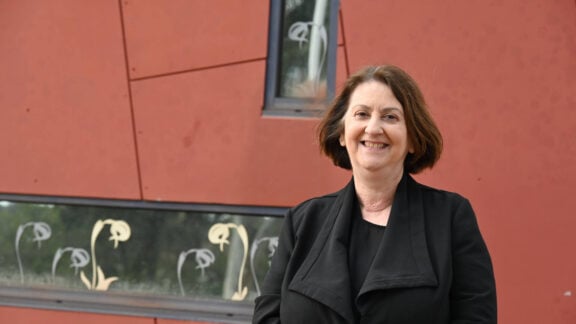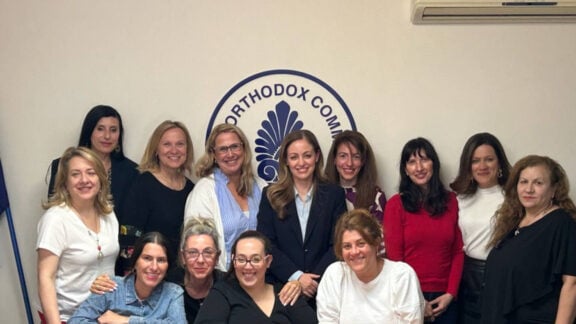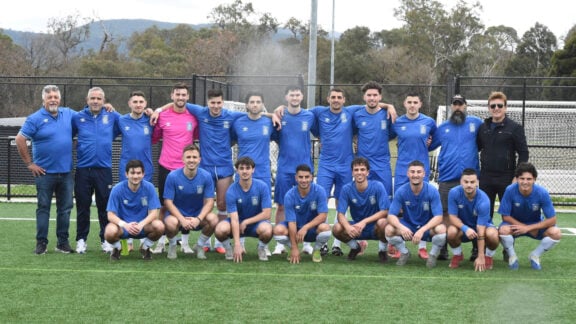A largely secret and often tragic aspect of Australia’s migration history with ongoing consequences is just now coming to light, as a result of a major investigation by two SBS journalists.
It involves a group of elderly migrants, including some from Greece, who are still feeling aggrieved at the discrimination they faced from conservative federal governments over their political beliefs, often over decades.
SBS journalists Kristina Kukolja and Lindsey Arkley began uncovering these stories as they examined declassified security files relating to denial of citizenship.
Over a period of several years, Kukolja and Arkley gradually gained access to thousands more pages of previously secret ASIO and Immigration Department files.
Their investigation reveals that from the 1950s until the early 1970s, there were more Greeks than any other nationality among those whose application for Australian citizenship was denied on political grounds.
Most refusals were under policy to deny citizenship to anyone with confirmed or suspected Communist links – a policy eventually dropped when the first Labor government in 23 years was elected in late 1972.
One Greek man had worked and paid taxes for most of his life in Australia and should have been on the aged pension when he was finally granted citizenship – 43 years after first applying.
That seems to have been the Australian record – but plenty of others had to wait decades for their applications to be approved.
Greek community targets included members of the Democritus League in Melbourne, the Atlas Club in Sydney, and supporters of the Cyprus self-determination movement.
Those denied citizenship were unable to travel outside Australia for fear of being unable to return – even if they were married to Australians.
An extensive surveillance network, including paid informers, covered their community, club and even church gatherings – leaving many associates with security files.
The plight of what Kukolja and Arkley have dubbed these ‘Unwanted Australians’ was known at the time to some members of their communities, and to some politicians from whom they sought assistance.
However, no comprehensive report on the issue has ever been published until now.
“We found isolated examples of these people who managed to get themselves some publicity in the 1960s, but that’s about it,” says Kukolja.
“Specialists in Australian migration history have admitted that very little is known about what we have uncovered, perhaps largely because so much of it was hidden in files that were only recently declassified.
“One thing some have noted are the possible parallels between the way these people were treated and what’s going on in present-day Australia in the name of counter-terrorism.
“Individuals – and in some cases whole social groups – were targeted by authorities simply for daring to think differently to mainstream Australia.”
Kukolja and Arkley have also discovered that despite their status as WWII allies, many Greeks were also among the migrants who faced potential internment in Australia after being placed on what was known as a Special Alien Index.
Existence of the index, which began being compiled after the end of WWII, has still never been publicly acknowledged.
Those on the index included migrants and refugees from Soviet bloc countries – but also included any other migrant with suspected left-wing leanings, including all those whose citizenship applications had been rejected.
The index, prepared as a measure to implement in the event of an outbreak of another war, was maintained into the 1970s, and at its height, contained the names of more than 16,500 people.
Ominously, the SBS investigation also reveals new information about how Australian officials kept Greek authorities informed about the activities of “troublesome” left-wing Greek citizens in Australia.
“This information did not relate to any criminal offences in Australia – just legitimate trade union and other political activity,” says Kukolja.
Following the SBS investigation, some of the ‘Unwanted Australians’ are making an unprecedented call for the federal government to publicly admit that they were unfairly treated in having their citizenship applications refused.
Some want a formal apology.
Their call for acknowledgment is being supported by a number of leading academics and legal figures, including former High Court judge Michael Kirby, who recently headed a UN investigation into alleged human rights abuses in North Korea.
Kirby suggests it may be appropriate for some expression of regret in the federal parliament over wrongs done to the ‘Unwanted Australians’.
“Australia is often referred to as a parched continent,” he says. “Sometimes it is necessary to bring the healing waters of justice to flow. This appears to be such a case.”
‘Unwanted Australians’ aired on SBS World News at 6.30 pm on Sunday 10 July. The full investigation is available on sbs.com.au/news and is also scheduled to be broadcast on SBS Radio’s Greek language program.









